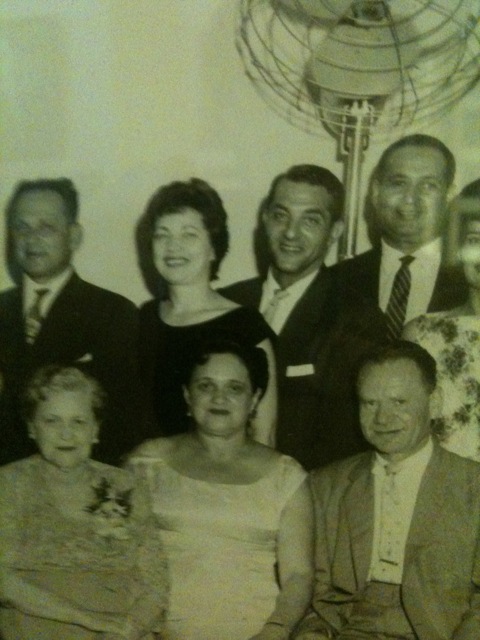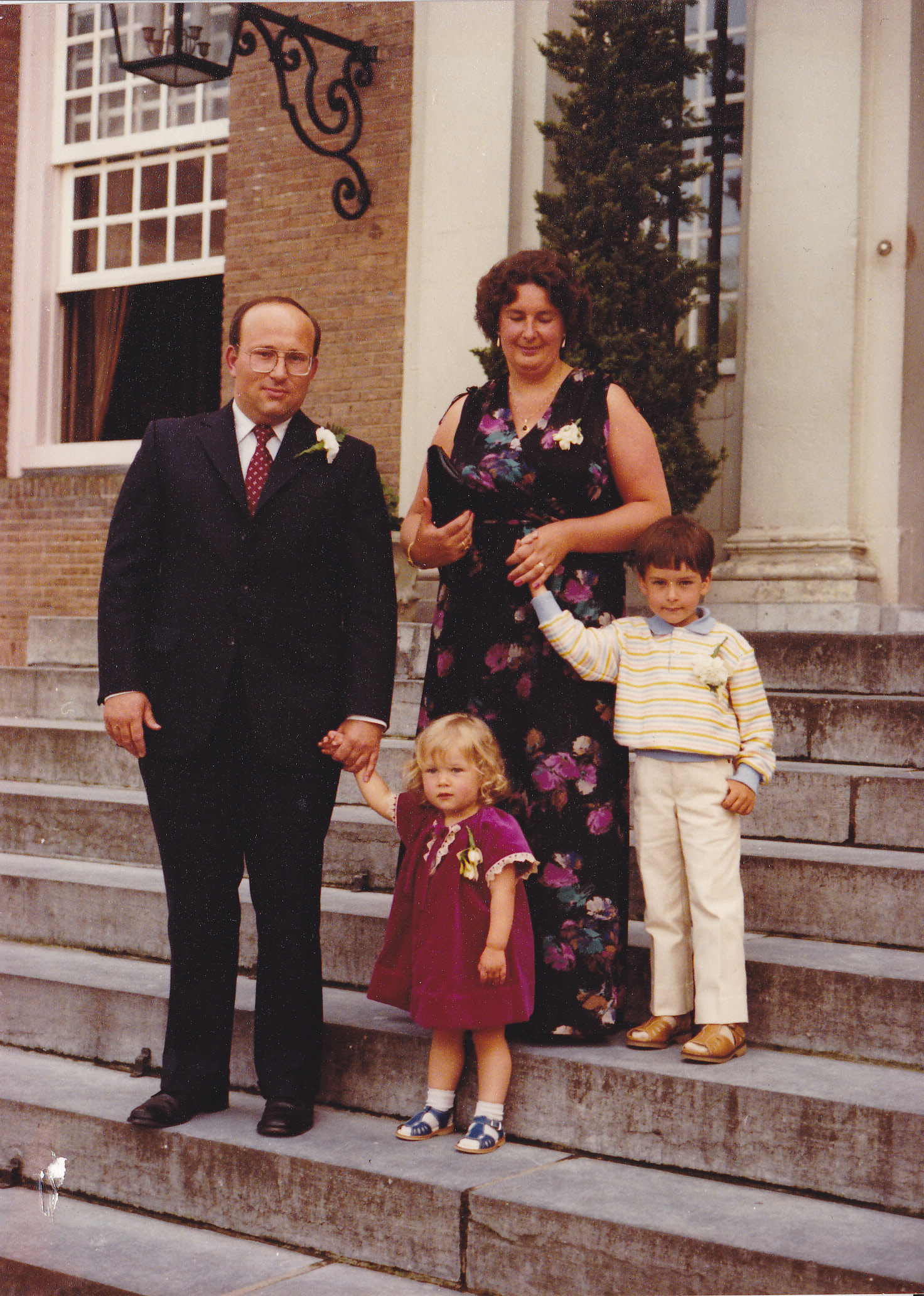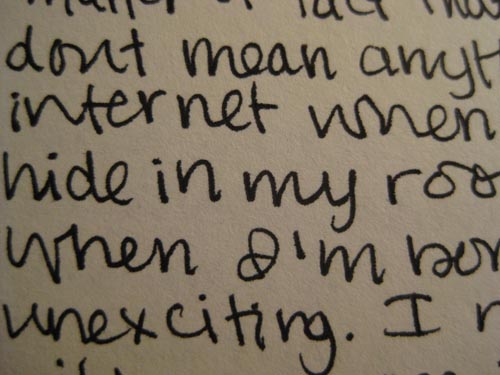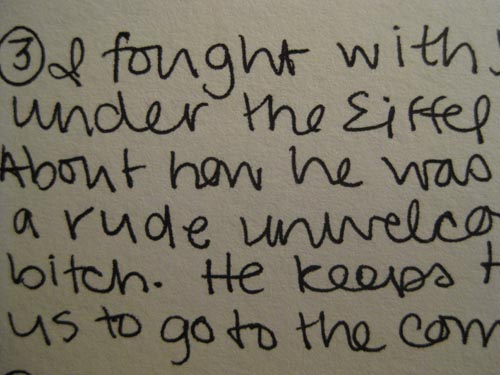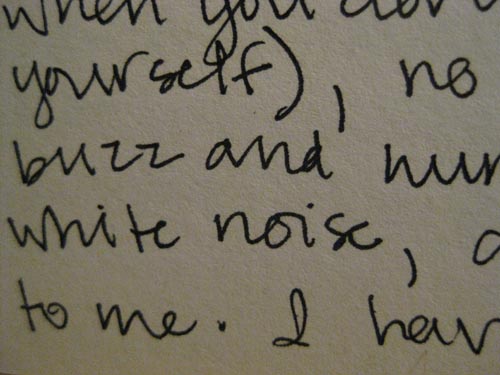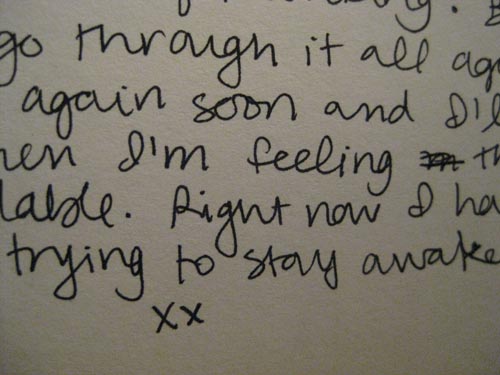by Emma Barrie
“It’s going to be in the 70s while you’re here,” Mom e-mails me from LA. “Bring a jacket.” I laugh that laugh of a New Yorker, of someone’s who’s spent time in the trenches.
Oh please, Mother, I think to myself, in sort of a British accent.
You don’t even know what cold feels like. I take the A train to JFK at 5am. On the way, I have an imaginary conversation with her.
Mom: You’re taking the SUBWAY? At FIVE AM? To the airport? Take a cab! I’ll pay!
Me: Mom, you don’t even get it. This is so much easier, and cheaper. I hate cabs.
I think about how efficient and competent and independent I am. I think about how I’m a grown-up. I miss my stop to JFK because I’m playing with my phone, and end up in the middle of fucking nowhere, at a beach that looks like it was just stormed in the invasion of Normandy. I’m shocked there are no dead bodies. Mom is always right. Even the mom in my head.
I never mention to my mother how I got to the airport when she picks me up in LA. Coming out of the terminal, I have to shield my eyes from the glare. I feel like someone who has never seen the sun. Like Edward Scissorhands. Or like Kevin Spacey in K-PAX: a foreigner from a distant, more sophisticated land, who might just be delusional. The heat feels good on my face, on the back of my neck. It seeps through my clothes and my skin, directly into my body, into my veins, like a much needed injection. I’d be lying if I said I didn’t sometimes think about moving home.
“Hi, Bunky.” She gives me a big long hug and she still smells like my childhood. I rest my cheek on her shoulder.
“Hi, Mom.”
We drive through the flats of Beverly Hills, past Christmas carols sounding from speakers attached to every lamppost, past Santa Claus and his seven (Eight? Twelve?) reindeer flying over palm trees, past signs that say Deck the Hills! It’s easy to forget the town is run by a bunch of Hollywood Jews. I notice the chandeliers that hang over Rodeo Drive are there, but they are always there. Year round. And it’s things like crystal chandeliers in transparent boxes that provide me with the Hate part of the Love/Hate relationship I have with my hometown.
My father calls me at least four times that day, making sure he can reserve my place at dinner that night for Chanukah festivities. I made it into the town for the last of the eight nights, so obviously we’re going all out: latkes will be served, and the menorah will make its way out of the storage closet. He tells me everyone will be attending—everyone meaning my stepmother, her children, one fiancé, and my legitimate blood brother. I know to get ready for a circus. Less Cirque Du Soleil and more Barnum & Bailey.
“I don’t know, I just don’t like the guy,” my brother Max says of my stepsister’s new fiancé. “His shirts are too tight. You can see his abs and shit.”
“Are you just jealous you don’t have any abs?” I ask, poking at my brother’s belly. He’s gained at least twenty pounds in the last year or so, and it’s mostly gone to his stomach.
“Yeah, you’re right. I’m jealous I’m not a douchebag, too.”
We’re in the car together, and I’m driving because Max says he’s tired. He says he hasn’t slept in two nights, but he doesn’t know why. He’s always had trouble sleeping. And because I’m home, I’m here to drive him around. But when I leave, I wonder if he’s able to get a ride. Or maybe my absence means Max’s bedroom seclusion.
“But couldn’t you have at least gotten dressed?” I ask. He is in a bathrobe and sweatpants. I know he’s going to get shit from Dad. He often shows up to family dinners or parties in his bathrobe, presumably for attention. But no one really says anything because everyone’s thankful he’s not in real trouble. And it’s easier this way, I tell myself. At least this way we never have to point out who the crazy one is. At least this way he doesn’t have to wear a nametag.
“I love my bathrobe,” he says. “It’s so soft. And clean.”
Max has severe obsessive-compulsive disorder. Part of his OCD prevents him from re-using hand towels to dry his hands or his face. So he uses toilet paper. Rolls and rolls of toilet paper. Mom was buying a new twelve-pack every few days, so she eventually had to put her foot down and tell him that if he wanted toilet paper, he’d have to pay for his own. She still buys it for the rest of the house, but because he started stealing it from other bathrooms, toilet paper is now hidden behind curtains and under beds. Often, I’ll find a roll without even looking. A fun surprise.
“I always wanted a little brother,” I tell my older brother.
We arrive at my father’s house, where the Madeleine Peyroux CD I got him as a Chanukah gift three years ago is playing. I wonder if this is a nice gesture or a subtle hint that I better had gotten him a gift this year. I did not.
“Hello, hello.” He looks my brother up and down. “What, you couldn’t find your clothes?” Max manages to give the most awkward halfway hug, where his back leg lifts up as he leans forward, and one leg stays grounded. They pat each other on the back repeatedly. It sounds like weak applause. My father kisses me on the cheek and I press my head into his stomach. “Don’t you look cute,” he says. I won’t lie. It’s nice having someone around telling me how cute I look all the time. For some reason my friends never do this.
My stepmother tells me she wants to show me her cat’s new trick. “Look what Igor can do now!” she says, and pats on her breasts. Igor jumps four feet into the air directly onto them. “Yay!” she screams, as she presses his tiny cat body against hers. My dad chuckles that chuckle—something somewhere in between “That’s actually sort of impressive” and “Kill me now"—and I know that if I ever decided to move back home, I wouldn’t just be around for the main show, I’d be around for every damn cat lesson.
My stepsister, her fiancé and his five-year-old daughter sit in the living room by the fire. The little girl sits on her father’s lap, and my stepsister stands behind them, giving him a massage. All of their sentences end in “Babe.” They look like one of those LA celebrity couples you’d see on the cover of Us Weekly with their elaborately ripped up v-necks and crucifix jewelry. But the little girl is cute. She has geeky wire-rim glasses and a button nose.
I have only met this five-year-old once before, but for some reason, at this particular dinner, she attaches herself to my hip.
“Do you want to sit next to Daddy?” The Colin Farrell look-alike asks as we find our places at the table.
“I want to sit next to Emma,” she says. I help her onto her chair. I’m usually pretty into people who are into me, whether it be men who want to date me, or small children who want to be my best friend. I feel like they must know what’s going on.
My other two stepsiblings—both boys—are also at the table. The older one is covered head to toe in tattoos (“Great, you paid to have someone cover you in permanent ink!” my father has been known to say every time a new one surfaces), and the younger one has a face, I’m sure, but it’s usually covered under a hat brim and pointed downwards, towards his phone, while he texts.
Everyone asks me how New York is. Depending on my mood—which fluctuates moment to moment—I say, “freezing,” or I tell a coffee shop anecdote so that I can do an impression of the owner, showcasing my Jersey-Italian accent and excessive hand gestures. This always gives my dad a good, hearty laugh. After I have one glass of wine, I’m giving a detailed explanation of how to make hearts and leaves out of milk fat on top of peoples’ lattes. It’s something I’ve come to take a lot of pride in.
My dad then tells us he has a surprise.
I should mention that about two weeks earlier, my parents discovered Skype. My parents haven’t really spoken to each other in years, except for at my graduation where they got into a fight and my mom left early. But somehow, they both managed to discover outdated technology in exactly the same week. Watching my parents with new technology is like watching someone who has stumbled into a leprechaun. THEY ALWAYS SAID IT WAS REAL BUT I NEVER THOUGHT BUT HERE IT IS OH MY GOD. It’s comparable to when my grandmother got her Xerox machine in 2007. (“Look! It made another one! Hooray! Now there’s one for everybody!”)
When my mother and I video chat she says things like “When I was a little girl this was considered like, the FUTURE, you know? But now we’re in it! We’re in the FUTURE!” And then she shows me how she learned to add a virtual crown onto her head.
The first and only time my Dad Skyped me he was at a complete loss for what to say. He spent about five minutes telling me how cute I was, and saying “Look at you!” and then luckily my stepmother called him away for dinner.
I have a feeling if I moved home, the Skyping wouldn’t stop. It would just be in closer proximity. “Come on, humor your mother!” I can practically hear her yell from her downstairs office after I’ve declined a chat.
My father brings out his Chanukah surprise, which, to everyone’s disappointment is not an all expenses paid trip to Honolulu, but instead, his old PC. He proceeds to video contact his best friend David in San Diego so that we can all say the prayers over the candles together. My father then gives David a virtual tour of his house, and shows him his new digital picture frame—another piece of technology recently acquired. (Not knowing exactly how to use it, Dad ended up uploading his entire photo library onto the thing, so that it circulates mostly through photographs of himself on various vacations. Dad on a snowy mountain holding skis. Dad in his swim trunks holding a giant fish. Dad in Paris, playing with perspective, pretending to squash the Eiffel Tower with his fingers.)
“It’s a high-tech Chanukah!” my father yells, enunciating into the machine, the way you might speak to a foreigner.
The excitement dies down after my father closes his laptop, and we all shift focus back to our latkes. The little girl then turns to me.
“Everybody farts,” she whispers, piquing my curiosity. Is she stating a fact? Recommending the title of a good book? Confessing to a sin? She continues to use the latke as a utensil, as a scoop to the get the applesauce into her mouth.
“You said it, sister,” I say, because no one ever taught me how to talk to children. She nods and continues licking her potato pancake.
The conversation turns to my stepsister’s engagement party next week, something I will unfortunately not be in town for, but hope there will be pictures of on Facebook. That way I’ll have something to do on a Friday night after work, and after I’ve inevitably turned down my roommates’ invitation to a concert at a venue in Williamsburg. Maybe because the walk to the subway seems too long and too cold, or because I intentionally locked my bike up somewhere far away since I hate riding it, or because I’m still stressed out about how someone yelled at me for not putting enough foam on their cappuccino. I’ll just end up going home and compulsively flipping through the party photos, laughing at the absurd decorations or the fellow Us Weekly looking guests. But then I’ll start to feel bad that I missed it. It will begin to look like my brother and I could have had a few laughs while we were there. And the pictures of the little girl will look pretty cute.
“Battle on!” Max yells at Igor. Igor and Bing (my father’s dog who looks like a Jim Henson creation) are lying on the floor pawing at one another. They pause for a moment, look bored, and both stand up to walk separate ways.
“Battle off,” Max says with disappointment, and shoves a latke into his mouth.
It’s gift-giving time around the fireplace and we all watch Colin Farrell open up a new plaid shirt from my stepmother.
“Oh, this is great, Mom,” he says, pulling off his current shirt to try it on. His 15,000 abs draw everyone’s attention. I think one of them is looking at me. I even see my father sneak a peak at his future step-son-in-law. I can tell he is mentally calculating how many hours of NBC Nightly News treadmill walking it will take to get him to look half as fit. I guess my brother had been waiting until the Ab Distraction to disappear into the bathroom, because once they notice he is gone, everyone immediately starts to worry.
Presumably their first thoughts are that he’s gone to shoot up somewhere or down a bottle of Vicodin or hang himself with the shower curtain. I assume he’s just fallen asleep, cheek to the tile floor. At least, this is what I hope for. My father stands by the bathroom door repeatedly asking him if he’s ok, not trusting his answer: “I’ve got a stomach ache!” No one settles down until he’s back. “Are you ok? Is everything ok? What was going on?” my stepmother asks repeatedly. No one believes the “stomachache” story. I know my mother wouldn’t have bought it either. She was the one who had all the locks taken off the doors in her house, so that in situations like this, she could bust in to discover the truth. They all turn to me, their eyes begging for answers, because after all, I am his keeper. The priest to his penitent. If something were up, I’d know about it. But this time, I don’t. I’ve been gone too long.
“I like you a lot,” the little girl squeezing into my chair whispers. “You like me too, don’t you.”
After a few more presents, after a few awkward half-hugs and handshakes, after another arrangement for lunch this week before I head back to New York, Max and I get into my car. I put the key in the ignition so that we can turn on the heat. It’s probably 60 degrees, but my LA instincts have already kicked in after less than 24 hours.
“You feeling ok?” I ask.
“Yeah, why?”
“I thought you had a stomach ache.”
“Oh, ha,” he says, and pulls rolls and rolls of toilet paper from his baggy robe pockets.
“I should have guessed. The TP bandit. At it again.”
“Yeah, well.”
I pull out of my father’s driveway and Max falls asleep right away. I remember our mother taking us on car rides when we were little, to get us to go to sleep. I felt safe falling asleep first, or at least trying to, as my brother stayed alert in the seat next to me, attentively watching the moon, keeping one eye on his little sister.
Driving down Sunset, I keep both eyes on the road but occasionally glance to check on my brother. I turn off the heat and roll down my window a little. And though it doesn’t feel warm, it doesn’t feel cold either. It’s just a light wind on my face that whispers, “Moooveee hommeeee.” But then I hear it whisper “Everyyybodyy fartttsss.”




